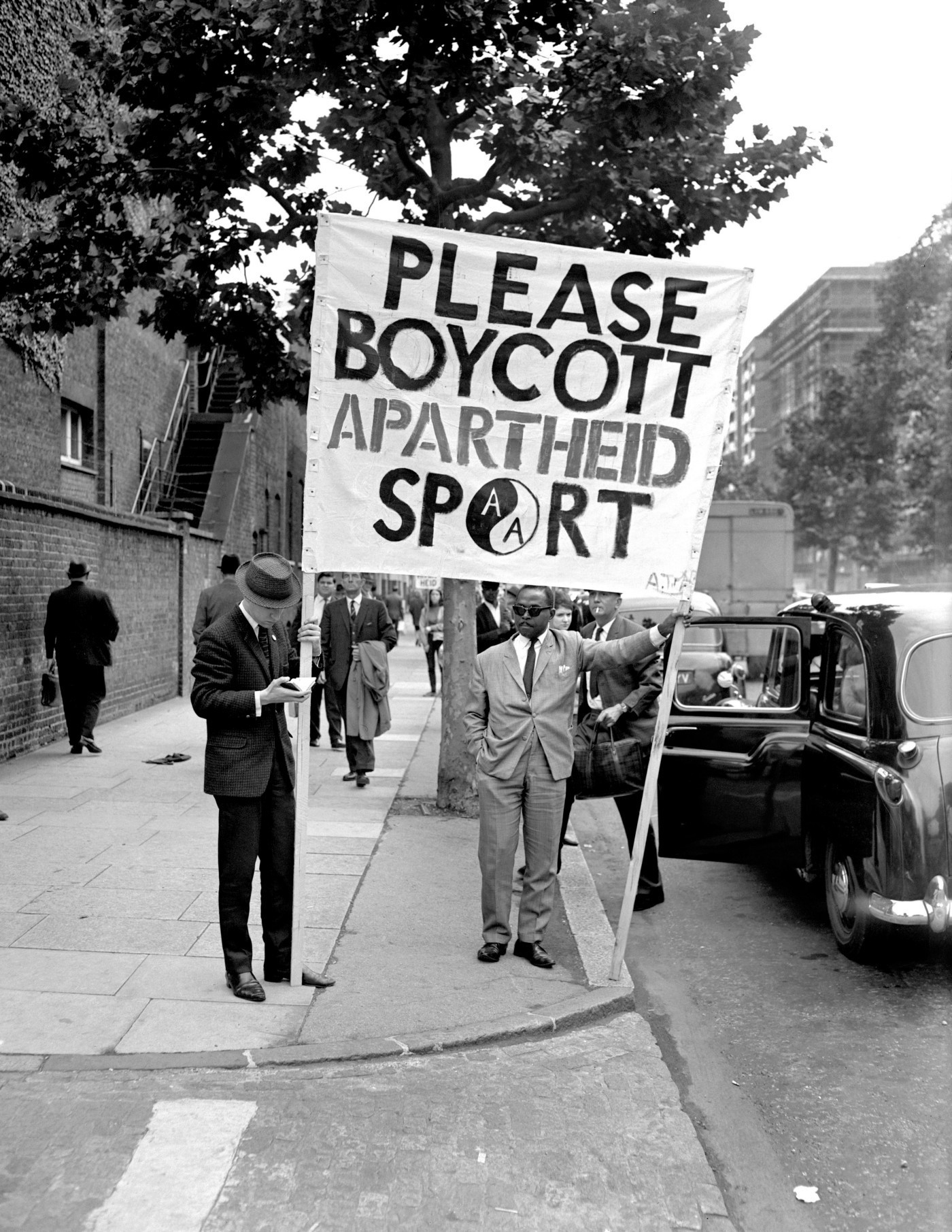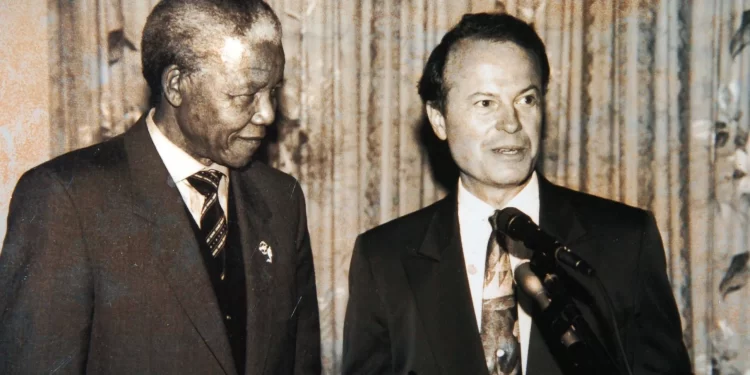By: Zachary Draves
On May 10, 1994, Nelson Mandela not only became the first black president of South Africa but the first one democratically elected. After serving 27 years in prison at the infamous Robben Island for his refusal to abide by the oppressive regime of racial apartheid, an international effort to root out said system, and the first-ever democratic election in South Africa, his rise to power marked the official beginning of a new day.
(Courtesy: AFP)
He declared that “the time for healing of wounds has come” before the presence of international dignitaries and the world. One of those attendees was pioneering sports scholar and activist Dr. Richard Lapchick.
The son of pioneering basketball coach Joe Lapchick who signed one of the first black NBA players Nat “Sweetwater” Clifton to the New York Knicks, Richard learned from an early age about the severity of racism in America as he watched his father be on the receiving end of vicious harassment and threats.
It was there that he decided to dedicate his life to social change with sports as the vehicle.
During the 1970s, he was one of the leaders of the sporting boycott of South Africa in which he advocated for the banishment of the country from participating in international sporting events such as the Davis Cup.

(Courtesy: Getty Images)
In February 1978, Dr. Lapchick, at the time a professor at Virginia Wesleyan College, was attacked in his office one night by a group of masked men who then proceeded to carve the N-word into his stomach.
But he never relented.
He volunteered his time to the United Nations and worked with various anti-apartheid activists, including tennis legend Arthur Ashe.
It was due to his efforts that he received a personal invitation to Mandela’s inauguration.
(Courtesy: Northeastern University Digital Repository Service)
In an email interview with Team NBS Media, Dr. Lapchick describes the moment, Mandela’s appreciation for sports, and how his inauguration was the pinnacle point of a longstanding struggle for freedom and justice.
What was it like to be present for Mandela’s inauguration?
It was like a dream come true to see that a man who had been in prison for 27 years and was at one time the most hated person by the white government in South Africa becomes president
Describe for those who don’t know how instrumental the sports boycott was in helping to break down Apartheid in South Africa.
The sports boycott of South Africa was a big part of the anti-apartheid movement and possibly the most highly publicized. It got people who didn’t read the news pages to learn about apartheid by reading the sports pages. South Africa was also a sports-made country. When it became deprived of all sports contacts, it was a crushing blow to the regime.
Arthur Ashe didn’t live long enough to see that moment. You knew him well and given all he had contributed to the anti-apartheid movement, do you feel his presence there in some way?
As I stood on the steps of the union buildings witnessing the inauguration I looked up to the sky and noted to Arthur and said you’re here, my friend. I felt this presence clearly.
Didn’t Mandela want to go see soccer immediately after all the festivities?
Instead of going to any of the diplomatic celebrations in Pretoria honoring him, now President Mandela chose to take a helicopter back to Johannesburg to watch a Zambia -South Africa soccer match. I was lucky enough to be invited to sit in the box with him. As he entered I said Mr. President, with all those parties being held in your honor, why did you choose to come here? He replied, “I wanted my people to know that I know that I was freed from prison sooner than I would have been and became president sooner than I would have because of the sacrifices our athletes made in the sports boycott.”
It was the best Power of sports story I could imagine. We were standing in the stadium where the World Rugby Cup was to take place the next year. I knew Mandela was plotting in his mind how he would use the World Rugby Cup to bring people in South Africa together.
Would you say that Mandela’s inauguration was the culmination point?
The inauguration meant the end of apartheid and the raising of hope for the masses in South Africa.


 NFL
NFL






